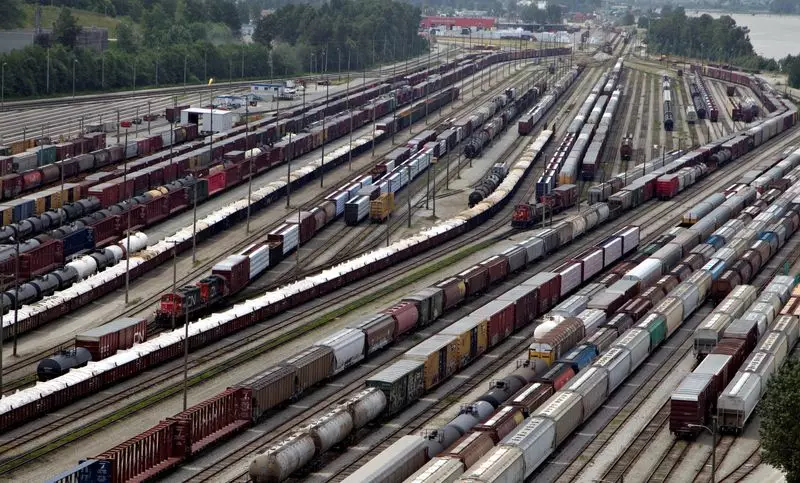The freight rail network in Canada is currently facing a major threat as the country’s two largest railroad operators, Canadian National Railway (CN) and Canadian Pacific Kansas City (CPKC), have issued lockout notices to the Teamsters union representing nearly 10,000 workers. If last-minute deals are not reached, both CN and CPKC plan to lock out workers starting Thursday. This simultaneous labor stoppage is unprecedented and could have significant repercussions on the Canadian economy.
The stoppages could severely disrupt the shipment of essential goods such as food grains, beans, potash, coal, and timber, which are crucial components of Canada’s exports. Additionally, other industries, including petroleum products, chemicals, and automotive, could also face shipment delays. The economic damage from these stoppages is projected to be in the billions of dollars, and it could disrupt rail trade across North America.
CN has stated that if a resolution is not reached immediately, the network will undergo a phased and progressive shutdown that will ultimately lead to a lockout. The dispute stems from CN’s proposal to implement a forced relocation provision, which the Teamsters union opposes. The union argues that this provision would require workers to move across Canada for extended periods to address labor shortages. CN, on the other hand, claims to have made four offers this year related to wages, rest, and labor availability, while ensuring compliance with government-mandated regulations.
CPKC’s dispute with the Teamsters union revolves around safety concerns. The union alleges that the company wants to remove safety-critical fatigue provisions from the collective agreement, potentially increasing the risk of accidents. CPKC, however, maintains that its offer upholds existing work rules, complies with new regulatory requirements for rest, and does not compromise safety in any way.
The Teamsters union, representing various railway workers, issued a 72-hour strike notice to CPKC before the lockout was announced. The union has instructed its members to treat CN’s lockout notice as a strike situation, prioritizing the defense of workers’ rights and safety. The union president, Paul Boucher, emphasized the importance of standing up for the rights of members in the face of these labor disputes.
While CN and CPKC have stated that their networks outside of Canada will continue to operate, the stoppages could have ripple effects across North America. Both railway operators connect with key U.S. rail and shipping hubs, such as Chicago, New Orleans, Minneapolis, Memphis, and ports on the east and west coasts of Mexico. The disruption in Canada’s freight rail network could impact the flow of goods in these regions, leading to delays and logistical challenges.
The federal Liberal government has chosen not to intervene in the labor dispute, opting instead for negotiations between the companies and the unions to resolve their differences. The situation remains tense, and the outcome of these negotiations will determine the future of Canada’s freight rail network and its impact on domestic and international trade.

